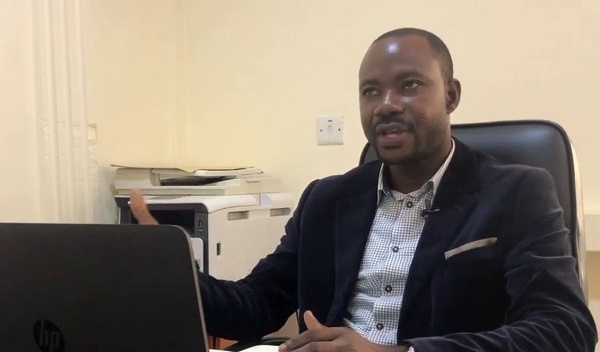The fiscal measures announced yesterday by Finance Minister, Ken Ofori-Atta, is expected to restore the fiscal consolidation process outlined in the 2022 Budget, Economist Dr. Adu Owusu Sarkodie has pointed out.
According to him, the measures which are short-term in nature will boost confidence and send positive signals to investors to continue to do business with Ghana.
He however wants government to exhibit commitment towards implementation of these measures.
Speaking in an interview with Joy Business, Dr. Adu Owusu Sarkodie, who is with the Economics Department of the University of Ghana said these measures will also reshape some macroeconomic indicators.
“The Minister [Ken Ofori-Atta] sought to do all these measures to restore confidence in the economy, confidence on the path of Ghanaians, to tell Ghanaians that well through the town hall meetings they’ve listened to their concerns and have attended to them. And also the confidence to the international community that they’re doing something about the economy and therefore they should come and invest in the economy of Ghana”.
Some of the measures announced by the Finance Minister are additional 10% cut in discretionary spending, 50% cut in fuel coupon allocations for all political appointees and heads of government institutions, moratorium on the purchase of imported vehicles for the rest of the year and moratorium on all foreign travels, except pre-approved critical/statutory travels.
Others are prioritising ongoing public projects over new projects, reduction in expenditure on all meetings and conferences by 50% with immediate effect and pursue of a comprehensive re-profiling strategies to reduce the interest expense burden on the fiscal.
Government also announced some reliefs to cushion Ghanaians against the economic shocks. They including 15 pesewas per litre reduction in price of petrol and diesel with effect from 1st April, 2022.
Dr. Owusu Sarkodie said these fiscal measures will complement measures from the Bank of Ghana to improve the economy once again.
“Remember, the Central Bank raised the policy rate just also because of the increasing inflation. So the exchange is rate was driving inflation, was driving all sorts of other macro variables in the economy. To restore the value of the cedi was key at this crucial moment and these measures are short term in nature.”
“And I’ll say that the other take of this is to restore economic growth and also provide safety net to cushion the poor and vulnerable”, he added.
Latest Stories
-
Legal Aid Commission employees threaten strike over poor working conditions
28 seconds -
Ghana ranked 7th globally as biggest beneficiary of World Bank funding
10 mins -
IMF board to disburse $360m to Ghana in December after third review
15 mins -
Former Bono Regional NPP organiser donates 13 motorbikes to 12 constituencies
20 mins -
Securities industry: Assets under management estimated at GH¢81.7bn in quarter 3, 2024
25 mins -
Gold Fields Ghana Foundation challenges graduates to maximise benefits of community apprenticeship programme
2 hours -
GBC accuses Deputy Information Minister Sylvester Tetteh of demolishing its bungalow illegally
2 hours -
Boost for education as government commissions 80 projects
2 hours -
NAPO commissions library to honour Atta-Mills’ memory
3 hours -
OmniBSIC Bank champions health and wellness with thriving community walk
3 hours -
Kora Wearables unveils Neo: The Ultimate Smartwatch for Ghana’s tech-savvy and health-conscious users
3 hours -
NDC supports Dampare’s ‘no guns at polling stations’ directive
3 hours -
Police officer interdicted after video of assault goes viral
3 hours -
KNUST’s Prof. Reginald Annan named first African recipient of World Cancer Research Fund
3 hours -
George Twum-Barimah-Adu pledges inclusive cabinet with Minority and Majority leaders
4 hours

